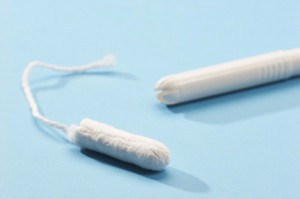 The sales tax on tampons and other feminine products has recently caught national interest and started a wave of outcries from women across America. Other necessities like medical supplies and food are exempt from sales taxes in most states, but only five states have specific exemptions for feminine products. Another five don’t have a sales tax at all, leaving 40 states with a tax on feminine hygiene products such as tampons and pads.
The sales tax on tampons and other feminine products has recently caught national interest and started a wave of outcries from women across America. Other necessities like medical supplies and food are exempt from sales taxes in most states, but only five states have specific exemptions for feminine products. Another five don’t have a sales tax at all, leaving 40 states with a tax on feminine hygiene products such as tampons and pads.
The taxing of feminine products started to gain attention when two members of the California State Assembly, Cristina Garcia and Ling Ling Chang, introduced a bill in January to eliminate the sales tax on tampons and pads in their state. The attention continued to grow when President Obama was interviewed by popular YouTube vlogger Ingrid Nilsen, who asked him why 40 states are taxing tampons as “luxury items.” His response? “I have no idea.”
In order to understand this tax, it’s important to learn more about tax codes in general. Feminine products are not necessarily being singled out and as luxury items but rather included in the sales tax on personal health care items. Toilet paper, soap, and incontinence pads are included under the tax as well; these items could also be argued as non-luxury items.
One of the main arguments for eliminating this tax, in addition to it being an unfair tax on women, is that it makes these items unaffordable for low-income women. According to a NY Times article, “Women in California spend an average of $7 a month on tampons and pads. For those living in poverty, that cost is significant. They may have to choose between hygiene products and food or medicine. Food stamps do not cover feminine hygiene products.” To add to the problem, many homeless shelters cannot consistently keep these items available to women because of a lack of donations.
Women are working across many states to pass legislation to eliminate sales taxes on feminine products. This will make the products more affordable for women and remove any possible unfair tax treatment.
Want to gain a better understanding of your menstruation cycle? Make an appointment with an All About Women gynecologist today.


